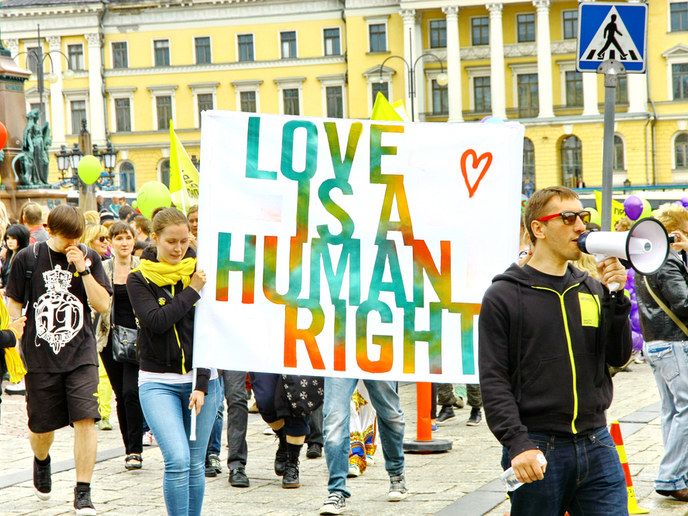LGBTI+ asylum claimants call for a fairer system
Asylum claims by people who are lesbian, gay, bisexual, transgender, intersex, and of other sexualities, sexes and gender diversities (LGBTI+) are increasing. Individuals often face discrimination and can be victims of persecution in their countries of birth, which makes it necessary for them to seek asylum in less hostile countries. Although the number of people in the LGBTI+ community fleeing persecution is rising there is a relative lack of academic studies and NGO reports focusing on this very specific type of asylum claim. According to Nuno Ferreira, co-director of the Sussex Centre for Human Rights Research, this is mostly because researchers and policymakers have so far failed to realise that sexual orientation and gender identity (SOGI) asylum claims are actually widespread. “Until recently, SOGI asylum claimants have been rather invisible within the larger refugee population. Meanwhile, political and media priorities have generally lain elsewhere. Experts were most concerned with racist, xenophobic, homophobic and transphobic social trends,” he explains. By interviewing almost 500 people, including policymakers, lawyers, NGO activists and asylum claimants, the European Research Council-supported project SOGICA (Sexual Orientation and Gender Identity Claims of Asylum: A European human rights challenge) has managed to paint a detailed picture of the problem as well as draft recommendations for future policies. “We offer a comprehensive and in-depth analysis of SOGI asylum claims. We base it on a comparative, interdisciplinary and empirical approach. First, we used case studies in Germany, Italy and the United Kingdom, along with the EU and the Council of Europe. We approached these from the double perspective of law and sociology and completed them with interviews and surveys. We are particularly proud to have reached out to over 200 SOGI asylum claimants and refugees,” Ferreira adds.
Towards better policies
Project findings reflect the range of issues faced by SOGI asylum claimants. At the European level, Ferreira and his team notably found that the EU Common European Asylum System (CEAS) is not responsive enough to the needs and rights of SOGI minorities. Meanwhile, the European Court of Human Rights does not deal with applications from SOGI asylum claimants in a way that truly honours the European Convention on Human Rights. “It’s not much better at domestic level,” Ferreira says. “Asylum authorities often deal with SOGI claims in inappropriate and unlawful ways. They deprive claimants of quality legal advice and interpretation services and rely on stereotypes. They tend to adopt intrusive and demeaning lines of questioning and use an unreasonably high standard of proof.” Legal processes aside, project findings indicate that SOGI claimants and refugees are often exposed to violence and discrimination with regards to accommodation, access to healthcare, the labour market and educational provision. Whilst NGOs are trying their best to fill the gap, they often lack resources. But not all is dark and gloomy. Some positive practices have emerged, including SOGI-friendly interpretations of key notions of the refugee definition or procedural arrangements, which Ferreira says are worth replicating across Europe. “All these findings and our key proposals for the overall improvement of asylum systems in Europe are discussed in detail in our forthcoming book, which analyses our results in the context of Germany, Italy and the United Kingdom. The book will come out later in 2020, in electronic and open access format,” Ferreira notes. Besides this book, the team has published close to 50 articles and a database of over 1 000 case-law documents, policy papers and other elements related to SOGI asylum. The project has produced 30 national policy recommendations and 32 for the EU, which Ferreira hopes will be considered in the new EU LGBTI+ Equality Strategy. “At the end of the day, we envision an asylum system which – by acting upon our recommendations – ensures that all actors involved have sufficient training on SOGI matters and contribute to a culture of empathy towards SOGI minorities. The starting point for decision-making should be the claimant’s self-identification,” he concludes.
Keywords
SOGICA, asylum, LGBTI+, sexual orientation, gender identity

